Michelle Bradbury Laboratory
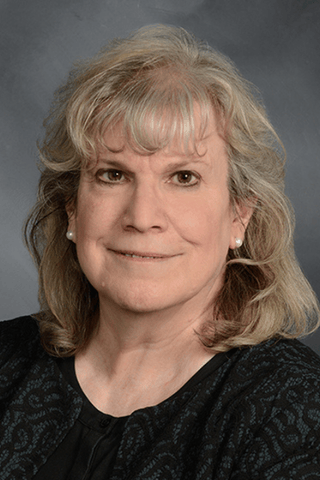
- Professor of Radiology
- MI3 Director
Michelle Bradbury, M.D., Ph.D., is a Professor of Radiology and Endowed Professor of Imaging Research at Weill Cornell Medicine specializing in Neuroradiology. She is Director of the Molecular Imaging Innovations Institute (MI3) and the Perioperative Imaging and Engineered Technologies Program for Cancer Treatment. She is also Head of Cross-Campus Research Collaborations and Innovations within the Cornell Institute for Engineering Innovations in Medicine. Dr. Bradbury earned a B.A. in Chemistry from the University of Pennsylvania. She then received an M.S. degree in Nuclear Engineering from the University of Maryland, followed by a Ph.D. in Nuclear Engineering (Radiological Sciences) from the Massachusetts Institute of Technology. In 1997, she received her M.D. degree at George Washington University School of Medicine. Her laboratory is focused on co-developing and translating molecularly targeted, ultrasmall particle and cellular-engineered platforms to the clinic for image-guided surgical and theranostic applications. These efforts build on longstanding diagnostic and therapeutic research programs at the nano-bio interface in various tumor and other disease models.
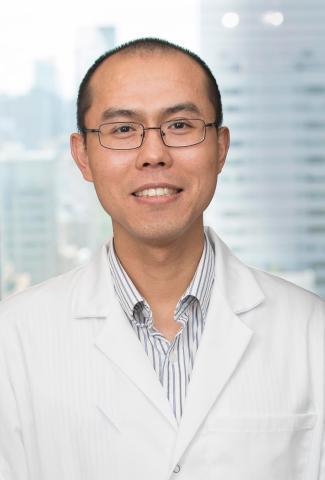
- Instructor of Materials Physics in Radiology
Ph.D. in Materials Physics and Chemistry with a specialization in Nanotechnology. Expertise in molecular imaging and ultra-small Cornell Prime Dot (C'Dot) technologies developed through post-doctoral training at the University of Wisconsin-Madison and translational research work at Memorial Sloan Kettering Cancer Center. Led Formulation/Platform development at Elucida Oncology (a clinical-stage biotechnology company) and was a key contributor to the FDA IND clearance of ELU001 (anti-human folate receptor alpha Nanoparticle-Drug Conjugates, NDC). Advanced the C’Dot diagnostic and therapeutic technologies and co-invented 6 patents. Now serve as an Instructor of Materials Physics at Weill Cornell Medicine's Molecular Imaging Innovations Institute. Google Scholar Publication Link
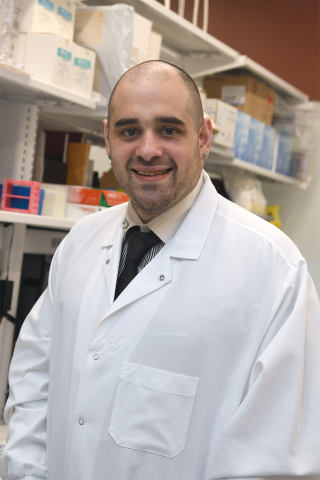
- Postdoctoral Associate in Radiology
Dr. DeLeon earned his Ph.D. in Immunology from the Duke University where he developed multicomponent peptide vaccines targeting human cytomegalovirus (CMV), specifically assessing the feasibility of a personalized CMV vaccine for treating glioblastoma (GBM). As part of his post-doctoral training at Duke in the Department of Neurosurgery/Division of Applied Theranostics, he studied the utility of employing platforms to study innate immune adaptor proteins (MAVS and STING) that could reprogram immunologically silent tumors into immunologically responsive malignancies. This was followed by a second fellowship in the Department of Molecular and Structural Biochemistry at North Carolina State University to elucidate molecular mechanisms underpinning the role of innate immune proteins involved in oncogenesis and viral infections. Dr. DeLeon joined Dr. Bradbury’s laboratory to advance next generation nanoparticles (C’ dots) and other engineered cellular engineered products to the clinic as part of combinatorial strategies to overcome suppression in solid tumor microenvironments.

- Postdoctoral Associate in Radiology
Dr. Siddiqui obtained his MPhil (Nottingham University) and Ph.D. (University of Cincinnati) in Pharmaceutical Sciences. Prior to his doctoral work, he worked as a pharmacist with an interest in designing and developing “smart” insulin delivery systems. His doctoral work focused on the development of a 64Cu-based PET imaging probe for specific detection of bacteria in vivo by targeting a distinct metal transport pathway. Utilization of non-pathogenic strains of E. coli, genetically-encoded for overexpressing a metal transporter, were also used to facility delivery of 67Cu to solid tumors as part of a targeted radiotherapy paradigm. He joined Dr. Bradbury's lab with the goal of developing novel bioimaging and precision engineered cellular/microbial systems for interrogating and treating diseased microenvironments.
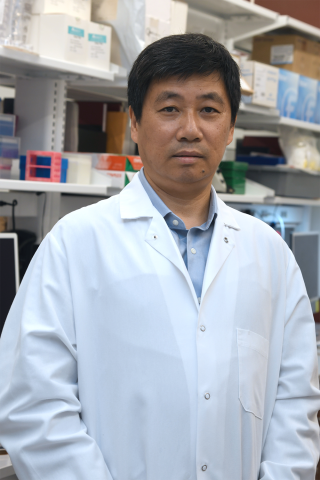
Dr. Zhang earned both his Bachelor’s and Master’s degree in Medical Science at the China Medical University, Shenyang, Liaoning. He then pursued a Residency in General Surgery and served as an Attending Surgeon at the Third Affiliated Hospital of China Medical University. He has held research positions at The Hospital for Sick Children (Toronto), University Health Network (Ontario Cancer Institute), the Rockefeller University (Laboratory of Cellular Physiology and Immunology), Mount Sinai School of Medicine (Transplant Service) and Memorial Sloan Kettering Cancer Center. Dr. Zhang joined Dr. Bradbury’s laboratory to assist with preclinical and/or clinical studies focused on modulating immune suppressive tumor microenvironments, enhancing therapeutic efficacy, and improving pharmacokinetic and safety profiles of particle tracers. He has expertise in animal breeding, molecular imaging, and analysis of biological specimens.
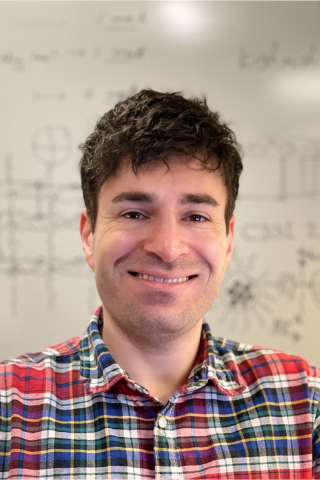
- Postdoctoral Associate in Radiology
Dr. Pourbaghi is an interdisciplinary researcher specializing in nanomedicine, oncology, biomaterials, medical devices, and AI. His work focuses on innovative healthcare solutions, enhancing patient outcomes through advanced technologies.
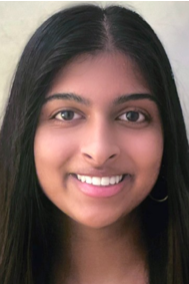
Ms Padmanhaban received her B.E. in Biomedical Engineering with Honors from Vanderbilt University in 2023, as well as pursued a second major in Communication of Science and Technology and a Neuroscience minor. At Vanderbilt University, Reethi analyzed the migration of breast cancer subpopulations in simulated primary tumor and fluid shear stress conditions. She also received a Cancer Prevention and Research Institute of Texas (CPRIT) and MD Anderson Continuing Umbrella of Research Experience (CURE) Summer Internship to study factors limiting the epithelial-to-mesenchymal transition in cancer cells.
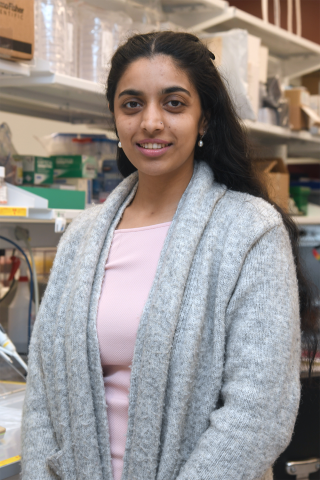
- Research Specialist in Radiology
Ms. Kashyap is the Laboratory Manager of MI3. She specifically manages all laboratory activities and orders, as well as assists the Program and Administrative Coordinator with other tasks needed to efficiently run programmatic initiative.

- Administrative Specialist in Radiology
Ms. Wood is a Program and Administrative Coordinator who assists the MI3 Director with the advancement of laboratory and programmatic initiatives. She specifically assists with the planning and coordination of new programmatic initiatives for MI3, monitors implementation of program policies and practices, monitors program benchmarks, supports programmatic growth and development, coordinates program communications.
Vanessa Bellat Laboratory
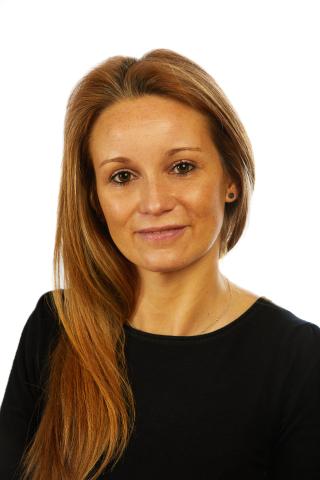
- Assistant Professor of Chemistry
By developing smart nanomedicines, Dr. Vanessa Bellat aims to achieve more specific and effective cancer treatment drug delivery. One of her main objectives is improving the safety and efficacy of chemotherapeutic treatments by designing on-demand nanocarriers that display organ-specific targeting and/or retention properties.
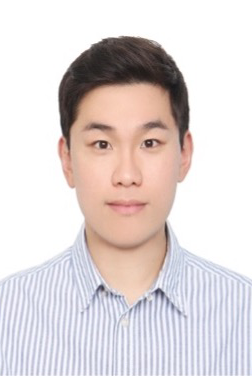
- Postdoctoral Associate
Dr. Lee pursued his education at the University of Illinois at Urbana-Champaign, earning both a bachelor’s degree and a PhD. Throughout his doctoral studies, he explored Quantitative Phase Imaging (QPI) and merged it with artificial intelligence (AI) methodologies. This integration facilitated the measurement of intrinsic cellular information, cellular dynamics, growth patterns, and intracellular transport. In 2023, he joined the Bellat Lab at Weill Cornell Medicine as a Postdoctoral Research Associate. In his current role, he is focusing on developing innovative smart nanomedicine (e.g., nanofiber) with specialized lung-targeting properties that will serves as a drug delivery platform intended to enhance the specificity and effectiveness of cancer treatment, particularly in addressing triple negative breast cancer (TNBC) lung metastases.
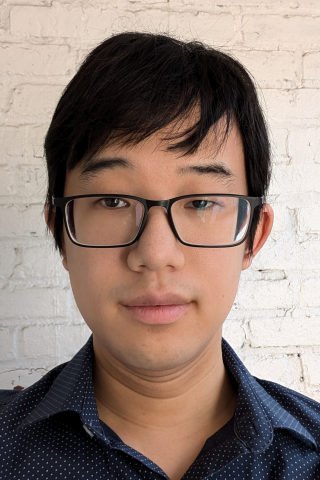
- Bioinformatics Analyst in Radiology
Henry got his MS degree in Biomolecular Engineering from the University of California, Santa Cruz. There, along with other research at Washington University, University of California, San Francisco, and the National Human Genome Research Institute (NIH), he studied the genomics of various systems and diseases including congenital heart and brain defects, leukemia, brain cancers, and cardiac/metabolic diseases using analyses of whole exome sequencing, microarrays, bulk RNA sequencing, gene fusions, metabolomics, proteomics, and single cell RNA sequencing. Henry’s current research interests are image analysis for cancer biology and treatment, heart and brain biology, and the genomics of the above.
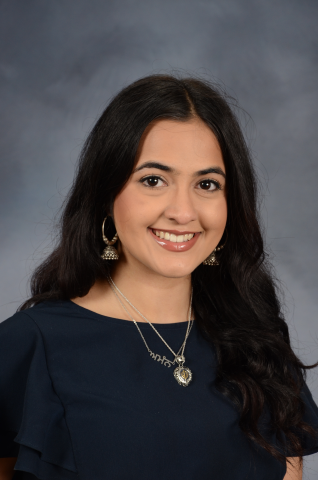
- Laboratory Technician II
Sarah M. Cheal Laboratory
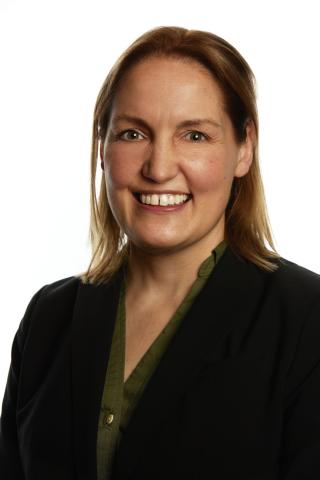
- Assistant Professor of Biological Chemistry in Radiology
Dr. Sarah Cheal is originally from Santa Rosa, California. She received her B.S. in Biochemistry from California Polytechnic State University, San Luis Obispo, and a Ph.D. in biological chemistry from the University of California, Davis, in the Claude F. Meares group. She spent two years working with Gary Griffiths at the National Institutes of Health (NIH) in the Imaging Probe Development Center core facility and did her postdoc at Memorial Sloan Kettering Cancer Center in the laboratory of Steven M. Larson. She enjoys visiting the national parks and exploring NYC/Long Island with her husband (Tony) and two children (Dominick and Lucia).
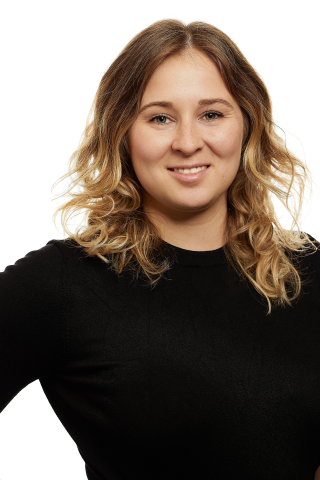
Dr. Rinne earned her doctorate in Medicinal Chemistry from Uppsala University (2022). During her doctoral training, she developed diagnostic and therapeutic approaches for targeting of human epidermal growth factor type 3 (HER3) in cancer. She is an expert in the radiosynthesis and preclinical characterization of theranostic radiopharmaceuticals (peptides, engineered scaffold proteins, antibodies). In 2022, she joined Dr. Cheal’s lab at the Radiology Department of Weill Cornell Medicine as a Postdoctoral Research Scientist. Her current focus is on the development of novel pretargeted radioimmunotherapy regimens using alpha- and/or beta-emitting radionuclides.
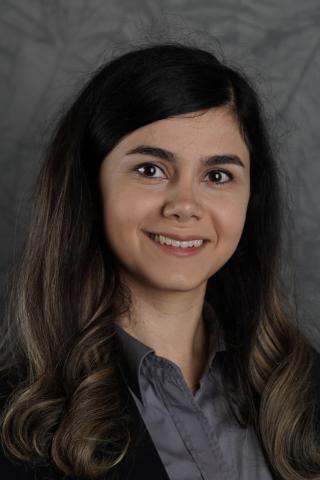
Niloufar obtained her MD from Shahid Beheshti University of Medical Sciences, Tehran, Iran, in 2020. During medical school, she contributed to clinical, translational, and basic science research projects. In 2022, she joined the Departments of Surgery and Radiology at Weill Cornell Medicine as a Postdoctoral Research Fellow. She is an aspiring surgeon-scientist dedicated to bridging the gap between clinical practice and research, with expertise in preclinical characterization of experimental therapeutics, including chemotherapies and radiopharmaceuticals. In the Cheal lab, her research focuses on exploring innovative molecularly targeted radiopharmaceuticals for treating gastric and colorectal cancers.
Dr. Ruder obtained his MD from McGovern Medical School at Houston (Formally University of Texas Houston) in 2017. After completing an Internal Medicine Residency at Mount Sinai Icahn School of Medicine in 2020, he served as a Hospitalist/Clinical Instructor at Department of Medicine, Elmhurst Hospital NYCHHC, Queens, NY and at Department of Medicine, Mount Sinai Icahn School of Medicine. In 2022, he joined the Division of Hematology and Oncology, New York Presbyterian – Weill Cornell Medical Center as a Clinical Fellow. His current focus is on the development of novel immunoPET and radioimmunotherapy regimens for treating advanced prostate cancer (in collaboration with Scott Tagawa MD).
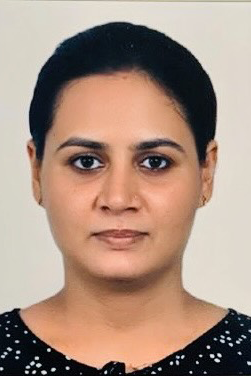
Dr. Ambika P. Jaswal joined the Sarah Cheal Lab as a Postdoctoral Associate in September 2024. She holds an MS in Nuclear Medicine from Punjab University, Chandigarh, India, and earned her Ph.D. in Life Sciences from INMAS DRDO, Delhi, India. Her doctoral research focused on the synthesis, characterization, and preclinical evaluation of small molecule based radioprobes for targeted imaging and therapy of various tumors using Tc-99m, Ga-68, F-18, C-11, and Re-188. Her doctoral research experience in radiochemistry and radiopharmacy laid the foundation for her specialization in radiation theranostics. Prior to joining the Sarah Cheal Lab, Dr. Jaswal completed her first postdoctoral training at UPMC, Children’s Hospital of Pittsburgh, University of Pittsburgh, from September 2021 to August 2024. During this period, she concentrated on the development of antibody and antibody-fragment-based targeted Radioimmunoprobes for theranostic applications in central nervous system (CNS) tumors and colorectal tumors using Zr-89, In-111, Ac-225 and Lu-177.
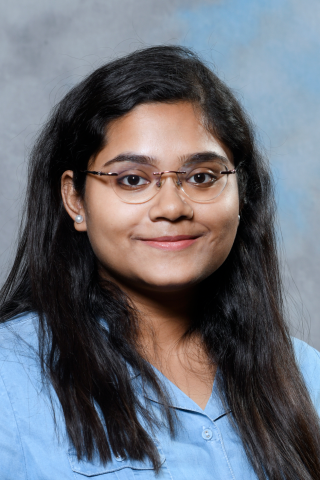
Sayani Saha is a research technician I in the laboratory of Dr. Sarah M. Cheal, Assistant Professor of Biological Chemistry in Radiology, MI3, Department of Radiology, Weill Cornell Medicine. Sayani graduated with a Master of Biotechnology from Northwestern University with a passion for cancer research and theragnostic. Sayani worked at Blue Rock Therapeutics on macrophage repolarization in the tumor microenvironment of glioblastoma which drove her into the world of oncology. She has experience with working in cell culture and pursuing her interest of becoming an expert in radiotherapy and cancer immunology.
Gene Kim Laboratory

- Professor of Biomedical Engineering in Radiology
Dr. Gene Kim is a professor of biomedical engineering in radiology at Weill Cornell Medicine. He received his Ph.D. in biomedical engineering from the University of Southern California and completed his postdoctoral fellowship in cancer imaging at the University of Pennsylvania. His research focuses on the development of quantitative dynamic contrast-enhanced and diffusion magnetic resonance imaging methods for early detection of cancer and assessment of treatment response, particularly in breast cancer and head and neck cancer. Dr. Kim’s laboratory has been funded by grants from the National Institutes of Health.
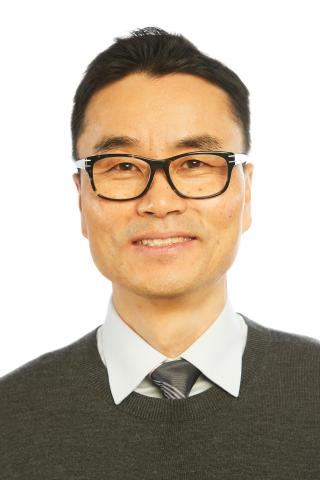
- Assistant Professor of Cell Biology Research in Radiology
Dr. Seung Koo Lee is an assistant professor of cell biology research in Radiology Department at the Weill Cornell Medicine. He earned his Ph.D. in immunology from Seoul National University, Seoul, Korea. During his Ph.D. course, he studied the signaling mechanisms of vitamin C that control tumor proliferation, and apoptosis in colon cancer and melanoma. He then completed postdoctoral training at the Houston Methodist Research Institute, where he invented a layer-by-layer nanoplatform (LbLN) that delivers a short interfering RNA (siRNA) and imaging probe to various cancers. His research focuses on the development of, (1) innovative multi-functional molecular imaging probes for various disease states including cancers and, (2) drug delivery systems for diagnostic, therapeutic and clinical applications.
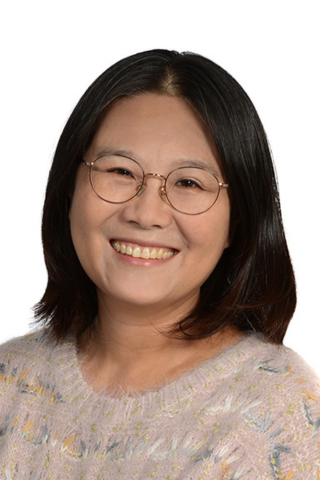
- Research Specialist in Radiology
Myung-Shin (Cindy) Han holds a master's in Molecular Biology from Sookmyung Women's University in Seoul, Korea. After finishing her master’s, Cindy worked as a research manager in orthopedic surgery at Seoul National University Hospital, researching tumor immunity and stem-cell therapy with bone grafts. She had also served as a Research Assistant to research molecular optical imaging with tumor cell lines and animals for 5 years at the Methodist Hospital Research Institute, Houston, TX. Since 2013, she's worked at Weill Cornell Medicine. For over 20 years, Han has had myriad experiences in animal experiments, and her expertise extends to innovative nanomedicine for tumor imaging and therapy. She's also working with sprayable fluorogenic dyes for image-guided ovarian cancer surgery.
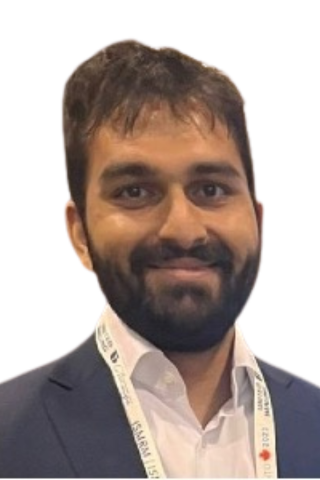
- Research Technician II in Radiology
Sawwal Qayyum received his bachelor’s degree in biology from Ramapo College of New Jersey. During his undergraduate training, he spent his seminar year looking at embryogenesis-lethal genes in C. elegans using RNA interference (RNAi) and clustered regularly interspaced short palindromic repeats (CRISPR)/Cas9 to visualize protein localization via green fluorescent (GFP) recombinant vectors. He previously worked at the New York University Langone Medical Center as a senior animal care technician, attaining there his laboratory animal technologist certification. He spent two years interning at the Preclinical Imaging Core headed by Dr. Wadghiri. There he became familiar with different modalities of optical imaging, magnetic resonance imaging (MRI), and tumor pH probe design. In the Gene Kim lab, Sawwal is studying the effect of metronomic chemotherapy on the tumor vasculature and angiogenesis of orthotopic triple-negative breast cancer (TNBC) and glioma mouse models using dynamic contrast-enhanced (DCE)-MRI.
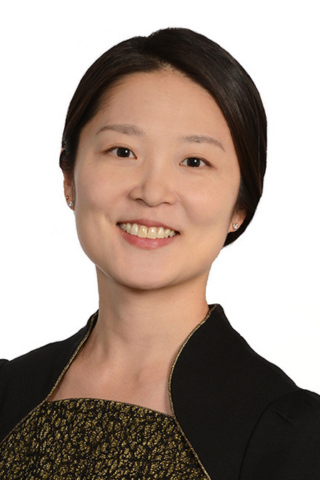
- Research Technician I in Radiology
Miran Jang holds a bachelor’s and master’s in bio and brain engineering from KAIST (Korea Advanced Institute of Science and Technology). Throughout her master's program, she developed an innovative microfluidics device for single-algal-cell cultivation. After completing her master’s degree, Miran joined the analytical team at Celltrion R&D Center, a leading biologics company. Her research expertise revolves around developing physical and chemical analysis assays for antibody biologics. She has experience developing antibody drugs, from early development to final approval. She has managed and led major BLA (Biologics License Applications) studies for biosimilars and a new drug.
James Kelly Laboratory

- Assistant Professor of Radiopharmaceutical Sciences in Radiology
Dr. James Kelly received a doctorate in organic chemistry from the University of Cambridge in 2011. His thesis work, supervised by Dr. Finian Leeper, focused on the development of conformationally restrained analogues of porphobilinogen as inhibitors of porphobilinogen deaminase. Upon completion of his doctoral work, Dr. Kelly spent one year as an Alfonso Casanava Research Fellow at the Universidad Complutense de Madrid, supervised by Dr. Miguel Ángel Pozo, before transitioning to a two-year industrial research fellowship carried out at Instituto Tecnológico PET, Madrid. Dr. Kelly’s work in Spain focused on radiofluorination of small molecules for brain imaging and automation, and validation of radiosynthesis procedures on automated synthesis units. Dr. Kelly moved to the Molecular Imaging Innovations Institute (MI3) at Weill Cornell Medicine (WCM) in 2014 as a postdoctoral fellow in the lab of Dr. John Babich. He was promoted to instructor in 2017, and assistant professor of radiopharmaceutical sciences in radiology in 2020. He is currently chief of radiopharmaceutical sciences at WCM.
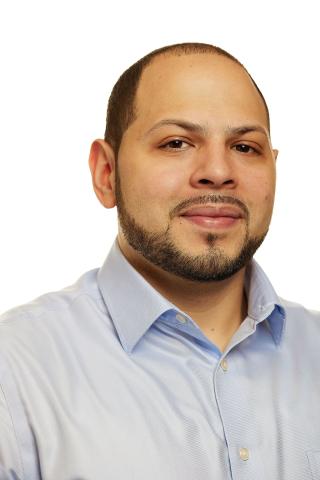
- Ruth Kirschstein F32 Postdoctoral Research Fellow
Juan Azcona is a postdoctoral associate in the Kelly lab. He acquired an M.S. and a Ph.D. in biochemistry and molecular biology from New York Medical College. His research interests and specialties are in enzymology, metabolism and vascular biology.
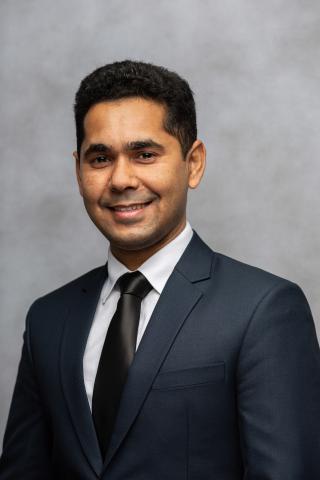
- Postdoctoral Associate in Radiology
Shuvra Debnath was born and raised in Bangladesh. He completed his bachelor’s and master’s degrees in chemistry at the University of Dhaka, Bangladesh. Upon completing his master’s in 2015, he joined the research and development division of Square Pharmaceuticals Ltd. in Bangladesh to gain research experience in the pharmaceutical industry. He moved to the University of Illinois in Chicago in fall 2016 to pursue his Ph.D. During his Ph.D., he gained research experience in synthesizing precursor molecules and developing a novel methodology for 18 fluorodeoxyglucose (F)-fluorination of drugs and bioactive molecules. He brings this experience to the Kelly Lab, joining in March 2022. Shuvra is a highly motivated researcher, and he would like to contribute to improving the health of human beings through our developed science. He plays chess and cricket, reads novels and watches movies in his spare time.

- Assistant Professor of Biochemistry in Radiology
Tom Jeitner, who holds a doctorate in experimental pathology from the University of Sydney, is broadly trained in that field. Consequently, he contributes the biological aspects of developing and validating the positron emission tomography (PET) tracers under investigation in the James Kelly Laboratory. Additionally, Dr. Jeitner investigates two novel entities formed by transglutaminase actions that may be important in neurodegeneration and its detection by PET.

- Postdoctoral Associate in Radiology
Chul-Hee Lee, a postdoctoral fellow in the Kelly Lab, is from South Korea. He is studying metabolic positron emission tomography (PET) imaging in prostate cancer, as well as the evaluation of PET biomarkers in cardiotoxic models. He is enjoying life in New York City while actively conducting research.
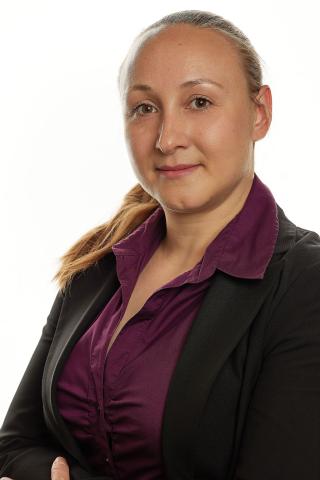
- Postdoctoral Associate in Radiology
Anja Wacker is a postdoctoral associate, who joined Dr. Kelly’s lab in the Weill Cornell Medicine Department of Radiology on March 14, 2022. She has a strong background in chemistry and biochemistry due to her M.Sc. and B.Sc. studies at the Technical University of Munich, and holds a Ph.D. in pharmacy from the Ruprecht-Karls-Universität in Heidelberg. Anja’s research interests focus on the design, synthesis and preclinical evaluation of innovative tracers for positron emission tomography (PET) imaging as well as the development of peptide-based compounds for targeted radiotherapy. She is inspired by the idea that advances in molecular imaging techniques can deepen our way of understanding biological functions, metabolic pathways and the evolution of pathological conditions, ultimately leading to improved personalized patient care.
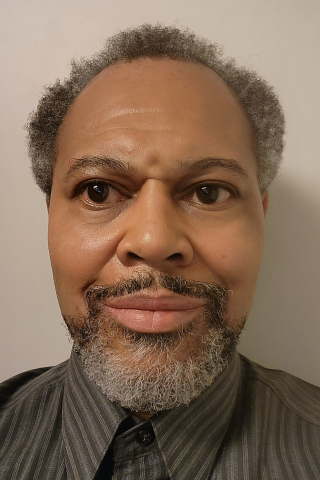
- Research Technician II
Clarence Williams Jr. is a senior research technician in the laboratory of Dr. James M. Kelly, Division of Radiopharmaceutical Sciences and MI3, Department of Radiology, Weill Cornell Medicine. Prior to joining the Radiology Department most of his research experience was in the field of Human Cancer Immunology as part of the New York Branch of the Ludwig Institute for Cancer Research at Memorial Sloan-Kettering Cancer Center, in the capacity of a research assistant involved with the development of monoclonal antibodies for diagnostic and therapeutic purposes. Targets discovered by monoclonals, including some from his previous lab are undergoing further investigation utilizing small molecules. He is happy to apply skills developed during his long history working with monoclonal antibodies to the theranostic radioligands being developed in the Kelly Lab.
Moustafa Gabr Laboratory
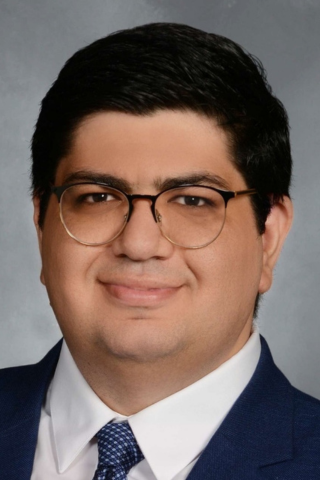
- Associate Professor of Chemistry in Radiology
Dr. Gabr completed his undergraduate studies in pharmaceutical sciences at Mansoura University. As an undergraduate student, he pursued research internships at the Complutense University of Madrid and the Chinese Academy of Sciences. After earning his master’s degree in medicinal chemistry and drug design in a joint program between Georgia State University and Mansoura University, he earned his Ph.D. in chemistry from the University of Iowa. His Ph.D. work focused on developing fluorescence-based theranostics for cancer and neurological disorders. Dr. Gabr completed his postdoctoral studies in the Gambhir lab at Stanford University where his work focused on developing small molecule immunomodulators as well as carbohydrate-based positron emission tomography (PET) tracer for molecular imaging of early bacterial infections.

- Postdoctoral Associate in Radiology
Laura Calvo Barreiro, Ph.D., graduated in biotechnology from the University of Leon, Spain, in 2013. As an undergraduate student, she honed her skills through internships at Exopol, a biotechnology company located in Zaragoza, Spain, and ITQB NOVA in Lisbon, Portugal. Her academic pursuits led her to Autonomous University of Barcelona, where she earned a master's in biomedical research, followed by a doctorate at Vall d'Hebron Institute of Research under the guidance of Dr. Carmen Espejo. Her doctoral research delved into the interplay between the gut microbiota and multiple sclerosis, laying the foundation for her keen interest in immune modulation and tolerance. Joining the Moustafa Gabr Lab in 2022 as a postdoctoral associate, Dr. Calvo Barreiro now focuses on uncovering novel small molecules targeting immune checkpoints while maintaining her passion for investigating the role of the gut microbiota and gut microbiota-derived metabolites in immune regulation.
Key research interests: immune tolerance, autoimmunity, immunotherapy
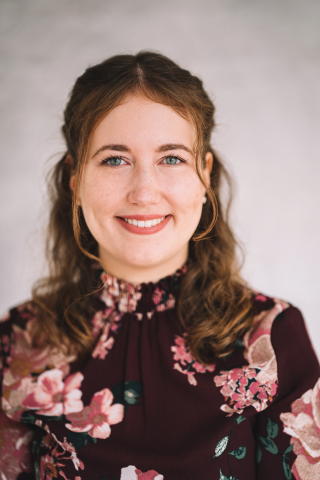
- Postdoctoral Associate in Radiology
Key research interests: Covalent checkpoint inhibitors, Biophysical screening methods in drug design, Assay development
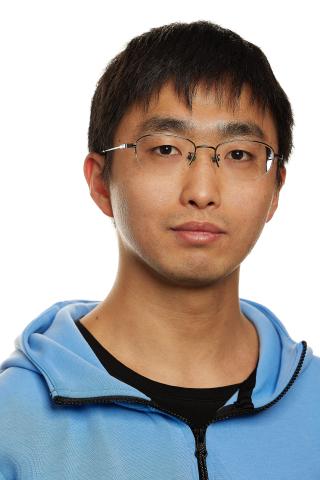
- Postdoctoral Associate in Radiology
Longfei Zhang, Ph.D., completed his undergraduate studies at Lanzhou University and earned his doctorate from Beijing Normal University in radiopharmaceutical chemistry. In his Ph.D. work, Dr. Zhang focused on developing PSMA-targeting NIR-II fluorescence probes for intraoperative surgery navigation and fluorescence or radioactive probes for Alzheimer's disease diagnosis.
Key research interests: molecular imaging, radiochemistry, drug discovery

- Postdoctoral Research Associate
Aikaterini Stavrou, MS, PhD, is a Postdoctoral Research Associate in the Gabr Lab at Weill Cornell Medicine. Her current research focuses on drug discovery in oncology, with a specific emphasis on immune checkpoint inhibitors for cancer treatments. Her work aims to identify novel therapeutic strategies that harness the immune system to combat cancer, addressing critical challenges in cancer treatment.
Dr. Stavrou earned her PhD in Molecular Toxicology and Carcinogenesis from New York University, with her doctoral research centered on cancer biology and the role of extracellular vesicles (EVs) in tumor microenvironments. Her work highlighted how EV-mediated signaling pathways contribute to cancer progression and metastasis. In addition to her PhD, she holds both an MS and a BS in Toxicology, providing a comprehensive background in understanding the safety and efficacy of therapeutic interventions. Her expertise in toxicology has given her a robust foundation for examining how cancer cells interact with their environment through EV-mediated signaling.
Throughout her academic career, Dr. Stavrou has demonstrated a passion for interdisciplinary research, merging her expertise in Toxicology, Cancer Biology, and molecular techniques to contribute to advancements in cancer treatment and drug discovery Her work contributes to a deeper understanding of cancer biology while exploring innovative strategies to develop more precise and effective cancer therapies Dr. Stavrou is dedicated to pushing the boundaries of cancer treatment through innovative research and collaboration in the scientific community.
Benedict Law Laboratory

- Associate Professor in Radiology
Dr. Benedict Law is an associate professor of pharmacology in radiology, Weill Cornell Medicine (WCM). He was trained as a hospital pharmacist in the United Kingdom prior to obtaining his Ph.D. at the University of Manchester. After he completed his postdoctoral training at Massachusetts General Hospital, he was recruited as a faculty member at North Dakota State University. In 2013, he joined the Molecular Imaging Innovations Institute (MI3) at WCM.
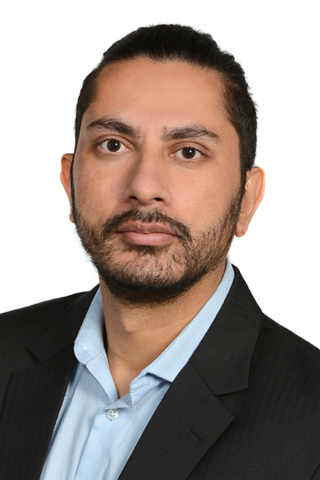
- Postdoctoral Associate in Radiology
Dr. Bhattarai earned his doctorate in Medical Physics from the University of Eastern Finland (2020). During his doctoral training, he developed an innovative dual-energy CT technique for diagnosing post-traumatic osteoarthritis. He then pursued a post-doctoral fellowship at the University of Hong Kong, focusing on advancing multi-spectral photon-counting CT in diverse medical applications. With a dedicated career in medical imaging and a passion for functional imaging techniques, he strives to enhance diagnostic capabilities. As a post-doctoral associate, Dr. Bhattarai is advancing PET/CT/X-ray imaging to detect and monitor the disease progression of local and metastatic breast and bladder cancers. ORCID-ID(0000-0003-3713-1349), LinkedIn (Abhisek Bhattarai).
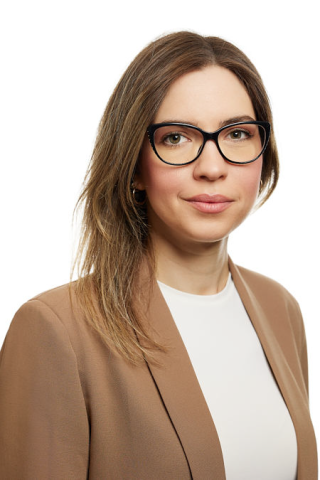
- Postdoctoral Research Scientist
Dr. Geromichalou obtained her MSc in organic chemistry from Aristotle University in 2013. After completing her Ph.D. at Kapodistrian University of Athens in 2019, she served as a Research Scientist in a private Greek Biotech company, specializing in the development of diagnostic reagents, particularly in clinical chemistry and immunochemistry. In 2022, she joined Dr. Law's lab at the Radiology Department of Weill Cornell Medicine as a Postdoctoral Research Scientist. Her current focus is on utilizing imaging techniques to explore innovative therapeutic strategies for treating bladder cancer.
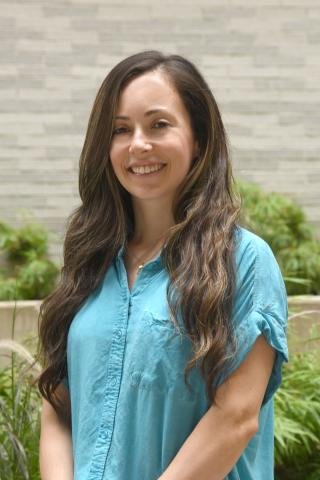
Dr. Silveria earned a bachelor's degree in biotechnology from the Federal University of Pelotas (UFPel) in 2015. Following this, she relocated to Ribeirao Preto and pursued a master’s degree at the Ribeirao Preto Medical School (FMRP) in 2018. Specializing in virology, Dr. Silveria researched the Zika virus. She is also actively engaged in engineering chimeric CAR-T cells against multiple myeloma. Immersed in academia, she completed her doctoral degree at the same institute in 2023. Dr. Silveria is poised to advance immunotherapies for urothelial carcinoma her at Weill Cornell Medicine, continuing an impactful journey in biotechnology and medical research.

- Postdoctoral Associate
Dr. Voura has a BS in Chemistry and an MSc in Organic Chemistry. She obtained her PhD in organic synthesis at Aristotle University of Thessaloniki in 2022, where she designed and synthesized small molecules, natural products, and PROTACs targeting MARK4 kinase. During her studies, Dr. Voura became interested in drug delivery systems for cancer treatment. In 2023, She joined as a Postdoctoral Associate in Law’s lab, focusing on developing new drug delivery systems using peptides targeting biomarkers for cancer treatment.


